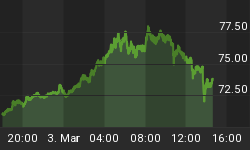At a time when airlines are canceling routes and countries are issuing travel bans related to the coronavirus, why not space travel? That’s one sector, at least, that coronavirus hasn’t touched.
Earlier this week, Richard Branson’s Virgin Galactic launched its new “One Small Step” qualification process, allowing those who are serious about flying to space to register now and buy a slot at the front of the line for firm seat reservations.
Virgin Galactic said it would begin taking $1,000 refundable deposits as it prepares to release the next batch of tickets to the general public. The space race company said prices and timing for its next flight were not available yet, even though tickets for the inaugural flights have earlier been priced at $250,000 apiece.
The company reported that 7,957 people have so far signed up on its website to register interest, including singer Justin Beiber, actor Leonardo di Caprio and many other celebrities and wealthy people.
Stephen Attenborough, the company’s commercial director, said in a statement that the increasing demand for personal spaceflight was encouraging.
“One Small Step allows us to help qualify and build confidence in our direct sales pipeline, as well as to ensure that those who are most keen to make reservations, are able to do so at the earliest opportunity,” he said.
Earlier this week, Virgin Galactic posted its first public earnings at the same time as it announced the front-of-line program, revealing a net loss of $72.8 million in the last quarter of 2019.
Until December 2018, when it closed down ticket sales, more than 600 people in over 60 nations spent roughly $80 million to reserve seats on Virgin Galactic rocket ships in hopes of being the first to gain access to this unique new service.
Related: Is A New Housing Bubble Forming?
SpaceShipTwo went through its first supersonic, rocket-powered flight test in California in April, and is expected to begin commercial operations at Spaceport America in New Mexico as early as next year.
Virgin Galactic plans to create a space tourism market in which wealthy travelers--not the general public, so much--are to spend that money to fly to the edge of space. The launch of the otherworldly service is slated to begin in the first half of 2021.
The global space industry is expected to generate revenue of $1.1 trillion or more in 2040, up from the current $350 billion, according to a recent Morgan Stanley estimate.
But Branson, of course, isn’t the only billionaire in the space race--even if he is the first to go public. Last October, Virgin Galactic Holdings became the first space tourism company to hit public markets after listing on the New York Stock Exchange (NYSE).
Virgin Galactic is up against Elon Musk's SpaceX and Jeff Bezos's Blue Origin for the title of the first company to send paying passengers into space.
In September, Musk unveiled the Starship spacecraft designed to carry 100 passengers and cargo to space. SpaceX announced test flights would start soon, with plans to land on the moon before 2022.
Earlier this month, Blue Origin opened a new rocket production facility in Huntsville, Alabama.
By Michael Kern for Safehaven.com
More Top Reads From Safehaven.com:

















